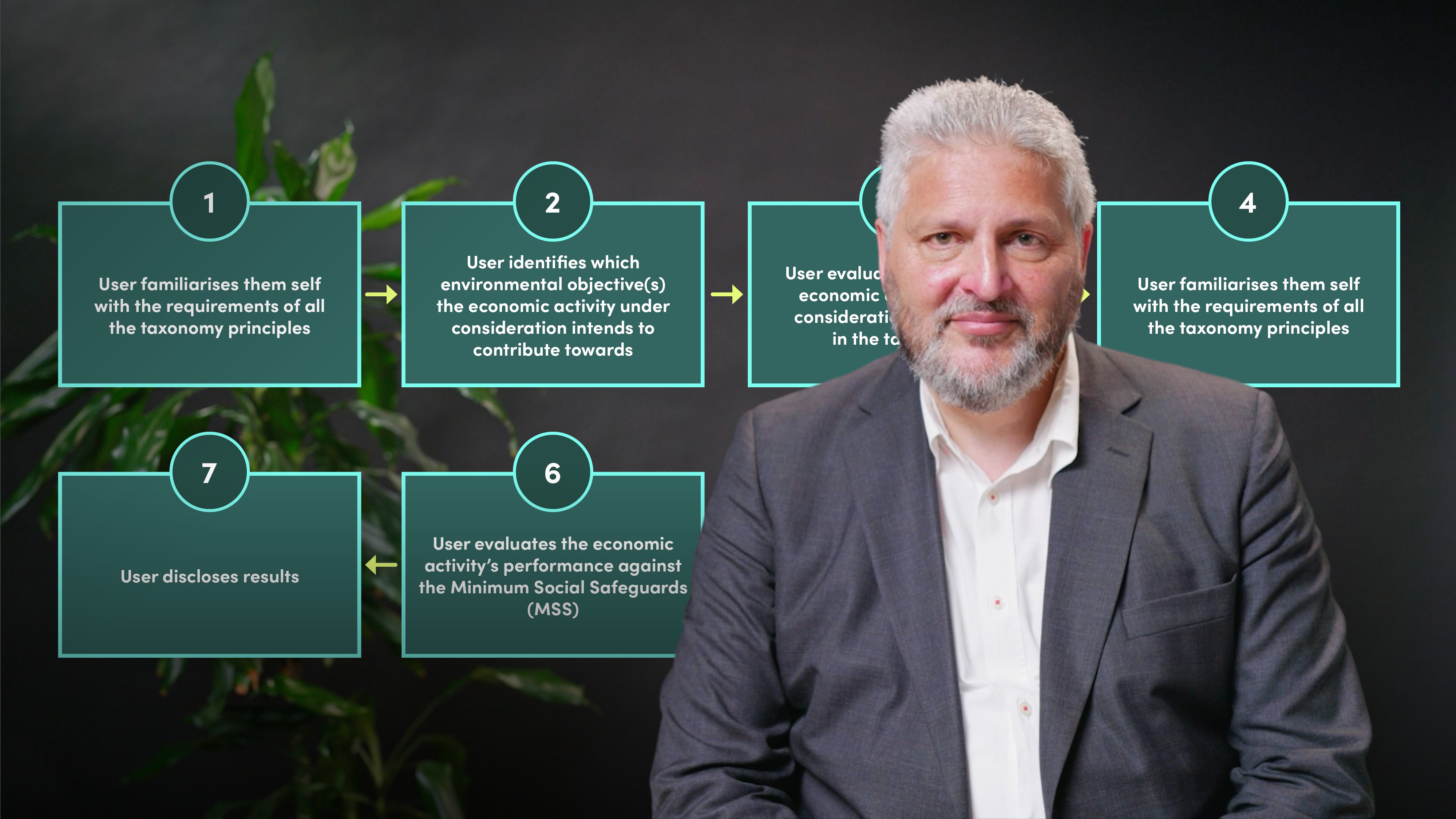
Other Notable ESG Taxonomies

Keith Mullin
35 years: Capital markets editorial
This video will delve into the ESG taxonomies of Australia and South Africa. Jon Keith as he discusses the current status of their initiatives, the goals and objectives, and the implementation process. He also covers the private sector-led Australian Sustainable Finance Roadmap and its 2022 priority of developing a taxonomy and the launch of the first phase of South Africa’s Green Finance Taxonomy, which is part of the country’s Sustainable Finance Initiative and was drafted in response to recommendations made by the National Treasury.
This video will delve into the ESG taxonomies of Australia and South Africa. Jon Keith as he discusses the current status of their initiatives, the goals and objectives, and the implementation process. He also covers the private sector-led Australian Sustainable Finance Roadmap and its 2022 priority of developing a taxonomy and the launch of the first phase of South Africa’s Green Finance Taxonomy, which is part of the country’s Sustainable Finance Initiative and was drafted in response to recommendations made by the National Treasury.
Subscribe to watch
Access this and all of the content on our platform by signing up for a 7-day free trial.

Other Notable ESG Taxonomies
7 mins 50 secs
Key learning objectives:
Understand the progress made towards developing an Australian Green Taxonomy
Understand the progress made towards developing a South African Green Taxonomy
Overview:
Australia is in the early stages of developing its green taxonomy, which is being led by the private sector finance initiative, the Australian Sustainable Finance Institute (ASFI). The taxonomy will support the measurement of financial flows towards sustainable outcomes, align lending and investment portfolios with 2050 net-zero goals, and assist investors in engaging with investees around their transition plans. It will also help calibrate risk weightings for eligible green and sustainable assets. In South Africa, the first phase of the Green Finance Taxonomy (GFT) was launched in April 2022 as part of the country's Sustainable Finance Initiative. The GFT is based on the EU Taxonomy, adapted for South African considerations, and will help identify sustainable investments and support the transition to a low-carbon economy.
Subscribe to watch
Access this and all of the content on our platform by signing up for a 7-day free trial.
What progress has been made towards developing an Australian Green Taxonomy?
As of July 2022, the development of an Australian Green Taxonomy is in the early stages. The Australian Sustainable Finance Institute (ASFI), a private sector finance initiative, is leading the work and has stated that the taxonomy is a 2022 priority.
The ASFI is taking its lead from the work already done by the EU, Japan, Singapore and the Common Ground Taxonomy work conducted by the International Platform on Sustainable Finance, and will also coordinate with taxonomies of countries like New Zealand.
The Sustainable Finance Roadmap outlines Australia’s plan for aligning the country’s financial system with moves to a sustainable economy. The taxonomy is a medium-term goal, aimed to be completed by 2025 and will drive the development of labelling standards. The taxonomy will help calibrate concessional risk weightings for eligible green and sustainable assets and align lending and investment portfolios with 2050 net-zero goals. It will also help investors engage with investees around their transition plans.
What progress has been made towards developing a South African Green Taxonomy?
In April 2022, the first phase of South Africa's Green Finance Taxonomy (GFT) was launched by the Taxonomy Working Group, which is part of South Africa's Sustainable Finance Initiative. The working group operates under the umbrella of South Africa's Climate Risk Forum, a body of individuals from government, regulators and the financial services sector and is hosted by the Banking Association of South Africa.
The foundation of South Africa's GFT is the EU Taxonomy, domesticated for South African considerations. The taxonomy breaks activity into nine macro sectors and 85 underlying economic activities. The taxonomy has six objectives, including climate change mitigation, adaptation, sustainable use of water and marine resources, pollution prevention, sustainable resource use and circularity, and ecosystem protection and restoration.
The first edition of the taxonomy only provides technical screening criteria for activities for the first two objectives, climate change mitigation and climate change adaptation. The National Treasury said South Africa's Intergovernmental Sustainable Finance Working Group will provide oversight and governance and inform the development of future regulatory instruments. The GFT notes that there is currently no regulatory agency in South Africa for taxonomy alignment, so the 1st Edition is a voluntary tool.
Subscribe to watch
Access this and all of the content on our platform by signing up for a 7-day free trial.

Keith Mullin
There are no available Videos from "Keith Mullin"





























